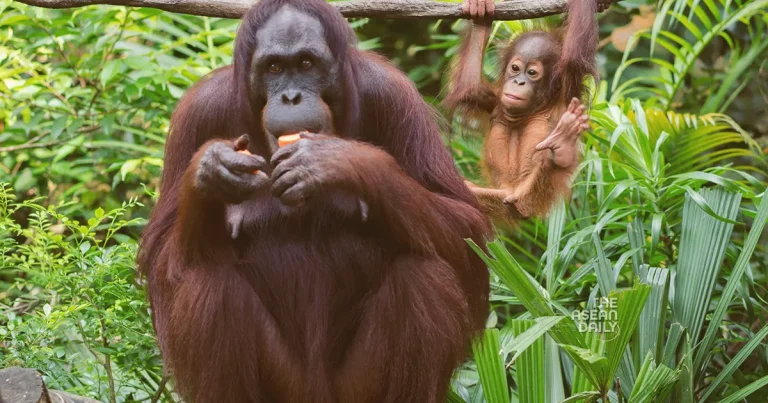19-8-2024 (KUALA LUMPUR) In a creative twist on wildlife conservation and international relations, Malaysia has announced an innovative ‘adopt-an-orangutan’ programme aimed at countries purchasing its palm oil. This initiative, revealed by Plantation and Commodities Minister Johari Abdul Ghani on Sunday, 18 August, marks a significant shift from the country’s earlier controversial proposal to physically send orangutans abroad as gifts.
The new scheme, inspired by China’s long-standing ‘panda diplomacy’, offers a more ecologically sensitive approach to wildlife conservation and trade relations. Unlike the original plan, which sparked widespread concern among conservationists, the revised programme ensures that the critically endangered primates remain in their natural habitats within Malaysia.
“All conservation activities will be conducted in forest areas or high conservation value forest patches within oil palm plantations,” Minister Johari explained to the national news agency, Bernama. He emphasised that these designated areas would provide orangutans with the freedom to roam, forage, and reproduce without human interference.
This initiative comes at a crucial time for orangutan conservation. The World Wildlife Fund (WWF) classifies these great apes as critically endangered, with their population severely threatened by habitat loss due to logging and agricultural expansion, particularly the spread of palm oil plantations.
Malaysia’s new approach appears to balance its economic interests in palm oil production with growing global concerns about wildlife conservation and sustainable agriculture. Palm oil, a versatile ingredient used in a wide range of products from food to cosmetics, has been a subject of environmental controversy due to its association with deforestation.




